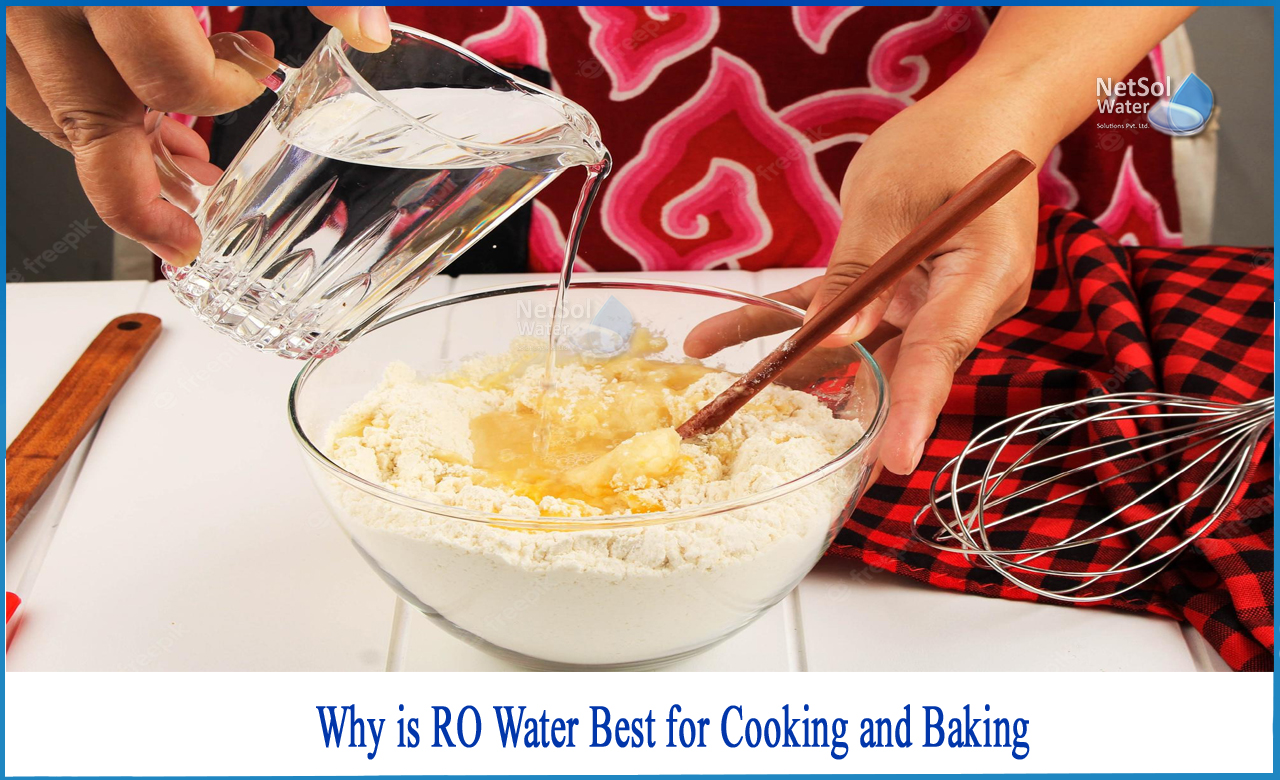Why is RO Water best for cooking and baking?
If you're looking for ways to enhance home cooking or cooking at restaurants, a simple technique should be at the top of your list. It's not the addition of salt, olive oil, lemon, or a hidden spice!
As basic as it may sound, the quality of the water you use when cooking, may have a big impact on the flavour, smell, texture, and overall quality of meals and pastries. Even if your tap water appears to be safe to drink, it may include a variety of toxins that could damage your favourite foods.
As a result, utilizing RO water for cooking and baking has become a trade secret among chefs and bakers!
RO water has a number of unique advantages that sets it apart from other forms of water, particularly when it comes to cooking and baking. Here are just a handful of the many advantages of cooking and baking using RO water:
1. Enhances the flavour of your meals and beverages
Untreated water often contains a slew of undesired pollutants, impurities, and minerals, many of which can degrade the flavour of your foods and beverages.
Cooking with RO water, on the other hand, can eliminate the chemicals, heavy metals, and other impurities that aim to alter the flavour of your dishes, resulting in more accurate recipes. Not only will your dishes taste better, but they will also appear more colourful and wonderful.
2. Limits your exposure to potentially dangerous water contaminants
Cooking with RO water not only makes your meals and beverages tastier and more delicious, but it also decreases your exposure to dangerous chemicals that are commonly found in tap water.
Filtering the water before cooking is the greatest approach to protect yourself and your family from any unforeseen pollutants in the water.
3. RO water aids in the production of excellent bread
More and more restaurants and bakeries are embracing the use of RO water in the preparation of freshly baked bread and other delectable baked goods. This is because any excellent baker understands that baking is both an art and a science.
Consistently good results in bread baking require more than just high-quality ingredients and accurate proportions. Water is required for the formation of gluten, the distribution of salt, sugar, and yeast throughout your dough, yeast fermentation, and the consistency of your dough.
Dissolved hard minerals and chemicals such as chlorine are prominent culprits that will have an effect on your baking. While some hard minerals in water are fine for baking bread, too hard water can limit the fermentation rate and tighten the gluten in the dough, affecting the texture and making the loaf hard and dry. Furthermore, the presence of chlorine reduces fermentation rates and alters the taste of your finished product.
Fortunately, RO water boosts the yeast's efficacy, letting it to rise faster and produce softer cookies. Filtration also removes chlorine, leaving you with loaves that smell and taste great. Furthermore, you can improve the results by "softening" the water to remove hardness minerals.
Conclusion
By filtering your water, you can go into the kitchen with confidence every day, knowing that water is pollutant free and that your dishes will turn out perfectly. You'll also know that your family is drinking the safest and cleanest water available.
Do you have any questions?
Netsol Water is here to assist you! We'd love to help you find a solution that matches your demands and budget, based on our many years of expertise producing some of the most economical and creative RO Plants for businesses.
Our RO systems and Water Softeners are available with a choice of customized features to meet the demands of your home and business. If you have any questions or product related query, contact one of our experts advisors via phone at +91 9650608473 or email at enquiry@netsolwater.com.



